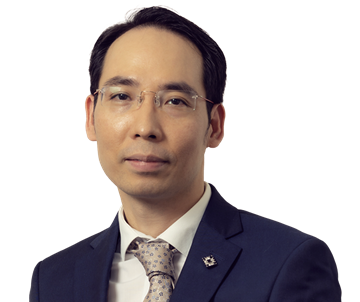Asia-Pacific employment law bulletin 2024
Singapore
Two key developments are expected in 2024 in relation to Singapore employment law.
Workplace discrimination laws
In 2024, we expect the enactment of a new dedicated piece of legislation prohibiting discrimination at the workplace, tentatively known as the Workplace Fairness Legislation (WFL). The Singapore government has fully accepted recommendations made by a special committee, set up to review the options to strengthen workplace fairness, and has stated its commitment to have the new statute enacted in 2024.
The new WFL will prohibit direct discrimination in respect of five categories of protected characteristics: age; nationality; sex, marital status, pregnancy status or caregiving responsibilities; race, religion or language; and disability and mental health conditions. It will cover all stages of the employment cycle, from recruitment to termination, but is not expected to cover indirect discrimination.
There will be exceptions allowing employers to consider (rather than disregard) protected characteristics. One such exception is available where the protected characteristic is a genuine and reasonable job requirement (for example, a spa with predominantly female customers, hiring mainly female therapists). Another exception allows religious organisations to make employment decisions based on religion and related requirements.
In addition, employers who wish to hire persons with disabilities or seniors aged 55 years and above will receive additional support. A new Tripartite Advisory on providing reasonable accommodations to persons with disabilities will also be issued.
While other characteristics such as sexual orientation, gender identity and criminal history are not expected to be protected under the WFL at present, the non-statutory Tripartite Guidelines on Fair Employment Practices (TGFEP) continue to guard against all other forms of workplace discrimination.
The difference between the WFL and the TGFEP lies in their enforcement and penalties. The WFL will provide individuals with recourse before the Employment Claims Tribunals (ECT), while the TGFEP can only be enforced through administrative penalties imposed by Singapore’s Ministry of Manpower (MoM), including possible curtailment of the work pass privileges necessary for Singapore companies to hire foreign individuals.
For now, firms with fewer than 25 employees are expected to be exempt from compliance with the WFL for the next five years.
Platform workers’ rights
A new class of individuals, platform workers, will also be created later this year. Defined as delivery workers, private-hire car drivers and taxi drivers who use online platforms to match them with demand, such individuals will not be considered employees of platform operators, but they will no longer be purely independent contractors either.
Platform workers will enjoy certain rights which have traditionally only been afforded to employees. First, they will have work injury insurance, which provides compensation for loss of income due to work injuries. The Singapore government has clarified that a platform worker would be considered working between the pick-up and drop-off of passengers and items, including when heading to their vehicles, and compensation will be based on the worker’s average actual earnings in the last 90 days.
Second, both platform operators and workers are also expected to be fully covered by Singapore’s Central Provident Fund (CPF) scheme, which is Singapore’s mutually funded social security scheme. At present, only Singapore citizens and permanent resident employees are required to make CPF contributions, with the employers of such employees also being required to contribute to the employee’s account.
Both platform operators and platform workers are to be fully covered under the CPF scheme, with the intention being for their contribution rates to match those of employers and employees by 2028. From the second half of 2024, CPF contributions will apply at lower rates (as compared with employees) for platform workers aged below 30. Other platform workers will be able to opt in. The Singapore government will also offer financial support to offset these contributions.
Third, platform worker representative bodies are expected to be formed, to obtain mandates and to represent platform workers collectively. These bodies will then be able to negotiate terms and enter into collective agreements with platform operators, facilitating the referral of collective disputes to the MoM for conciliation in the first instance, or, if this fails, to Singapore’s Industrial Arbitration Court.
Looking ahead
New guidelines on flexible work arrangements are also expected to be issued this year. While this will not have force of law at the outset, the guidelines will outline progressive workplace practices which employers would generally be expected to adhere to, or risk potential administrative sanctions.
With Singapore’s employment landscape set to evolve once again, employers and platform operators should be prepared to adapt and make necessary changes to their contracts, policies and practices, while keeping up to date with ongoing and further developments.
TSMP Law Corporation: Ian Lim, Nicholas Ngo, and Stasia Ong Pei Qi
Our team

Kathleen Healy Partner
London

Stephanie Chiu Counsel
Hong Kong

Fan Li Senior Associate
Shanghai

River He Associate
Shanghai

Rachel Harris Associate
London



